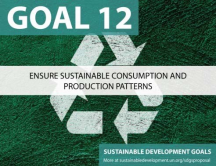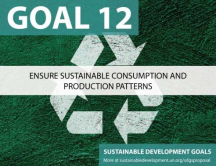
Scientific research proves that the state of the world is in peril. Take for instance, the environment. Already biodiversity has been reduced to the lowest levels in human history. We have lost 25% of all bird species, 24% of mammal species, 11% of plant species, and 24% of coral reefs. Many recent media have given a figure of 1,000,000 lost species, a number derived partly from research by TIES partners such as the IUCN.
Communities on this planet are not faring much better. One hundred thirty six million people live in extreme poverty. One in nine people on earth do not have enough food to lead a healthy active lifestyle. And globally we continue to experience grave inequality.
Tourism has the potential to combat these issues. Our research concludes that tourism accounts for 9% of the world’s GDP, 1 out of 12 jobs, and 29% of the services exports. Despite the fact that tourism is a significant economic driver, it can also be quite damaging to the planet’s environment and peoples. Overtourism is a common problem in some “hot spots” where degradation caused by inflow can vastly overwhelm even the benefits of tourism revenue, especially when that revenue is not distributed equitably.
Tourism accounts for 4.9% of global emissions, mainly through transportation and hotels. This increased consumption by large numbers of tourists puts intense pressure on resources and scenic landscapes. For example, tourism accounts for just 1% of the world’s water consumption, but in some popular tourist destinations, the figure is 6+% of national water consumption. Often times, this consumption occurs where fresh water is scarce.
Developing countries are particularly fragile to the effects of tourism in their natural, economic, and social environments. Their waste and sewage systems are ill equipped to support large influxes of people, and so it litters the destination. Locals are pushed out of their homes and cannot access the economic benefits of tourism revenue. Wildlife habitats are razed down or compromised to make way for increased construction.
Yet tourism is also uniquely positioned because people are compelled to protect what they love. Conservationists often point to the benefits of engagement and create strong arguments for access with well regulated parameters, because political will and policy only work so well. People want to preserve their culture, their history, and their natural resources, especially when they can experience them first-hand.
Since our early days, TIES has sought to remove the barriers that exist between people and places, communities and the private sector. We form partnerships throughout the world, spreading knowledge about wildlife and local cultures.
At the time, ecotourism was only a buzz word, and a little known one. Now, there is no credible tourism professional who does not know the word “ecotourism”. The alliance building that TIES was and continues to be engaged in, is the key to the success of ecotourism and sustainable tourism development. Even so, creating these partnerships takes time, skills, and knowledge.
Over the last thirty years, there have been lessons learned and the market has grown into the fastest growing sector of tourism. Through our guidelines, numerous publications, partnerships, workshops and conferences, TIES has been at the forefront of the ecotourism and sustainable tourism movement.
More than half of the published statements defining ecotourism are derived directly from ours, often with attribution. Our digital properties serve as the largest community of ecotravelers in the world, gathering engagement from over a hundred thousand active followers and over two million unique visitors. Past and present associates of TIES have gone on to serve as key stakeholders in all aspects of the tourism industry. We continue to be the go to organization for global media.
While these achievements are exemplary, there is still much work to do, especially as international tourists continue to increase by 3% each year, and governments seek to widely implement ecotourism. Your joining TIES will help us promote ecotourism and sustainable tourism initiatives by:
- Creating more educational opportunities for professionals who are passionate about sustainability
- Increasing the awareness of tourism’s impacts among travelers
- Facilitating partnerships among professionals, organizations, communities, businesses, and travelers
- Promoting ecodestination initiatives around the world
Thank you for being a part of our ecotourism and sustainable tourism community!

